Bacteria and other microbes such as viruses and fungi are often considered to be sources of disease, but the truth is that there are many that play a crucial part in keeping you healthy and well. There are trillions of microbes in our bodies, and most of these are beneficial. Your gut is home to the densest population of microbes in your body, and they play an essential role in immune function, weight regulation and digestion. If you want to help your good gut bacteria, then what you eat plays an important part.
Sauerkraut
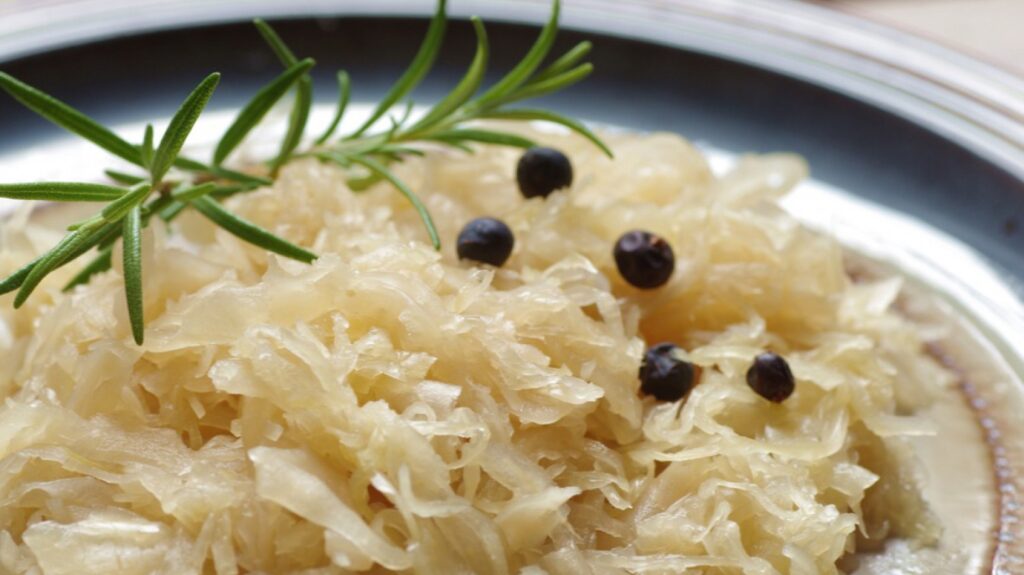
Sauerkraut is a German food staple, and you can find it in most health food stores and some supermarkets. However, if you want to achieve the full nutrient value, then it’s best to stick with the homemade version, which is simply fermented cabbage. It is very high in B complex vitamins and can also be useful in helping your body absorb iron. It’s included as a snack on the weekly AIP meal plan.
Kimchi
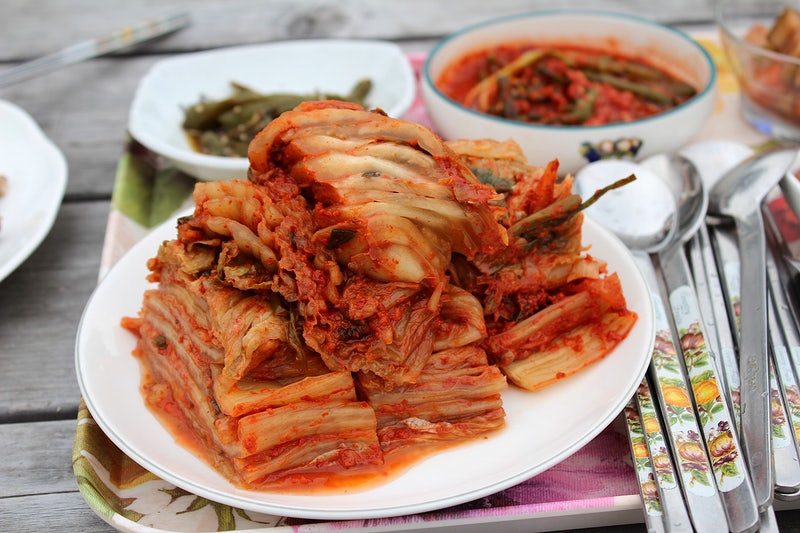
Kimchi is a Korean alternative to sauerkraut. It is also fermented cabbage, but it is made with various ingredients including spices. It commonly contains chili powder, onion, ginger, garlic, and salt. Traditionally, it is made with a fish base, but if you want a plant-based version, this is usually quite easy to find. In 2014, a study published in the Journal of Medicinal Food said that kimchi is a good source of probiotics, and an excellent food for your gut health. Studies have found that it is beneficial for preventing cancer, aging, and obesity while boosting your skin health, immune system, and brain health too.
Tempeh
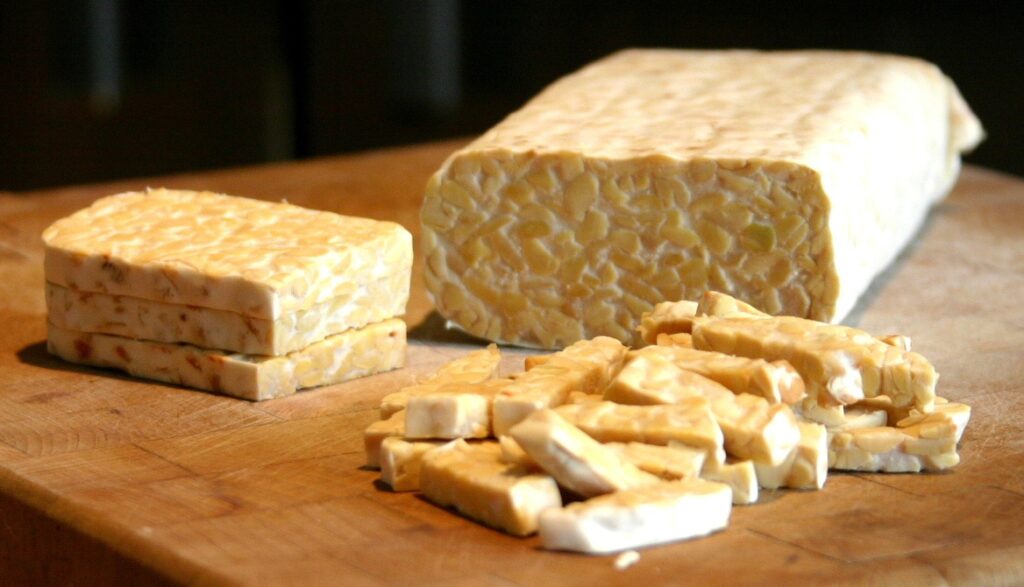
A traditional soy product, tempeh has been eaten for hundreds of years. The fermented soy is also easier to find these days, with more restaurants beginning to offer it on their menus and more supermarkets and shops stocking it. Studies have found that this popular source of protein is also useful for increasing healthy bacteria. You can eat it in salads, on sandwiches, or even as an alternative to bacon on a plant-free diet. Unlike most other fermented foods, you will need to thoroughly cook tempeh before you eat it.
Miso
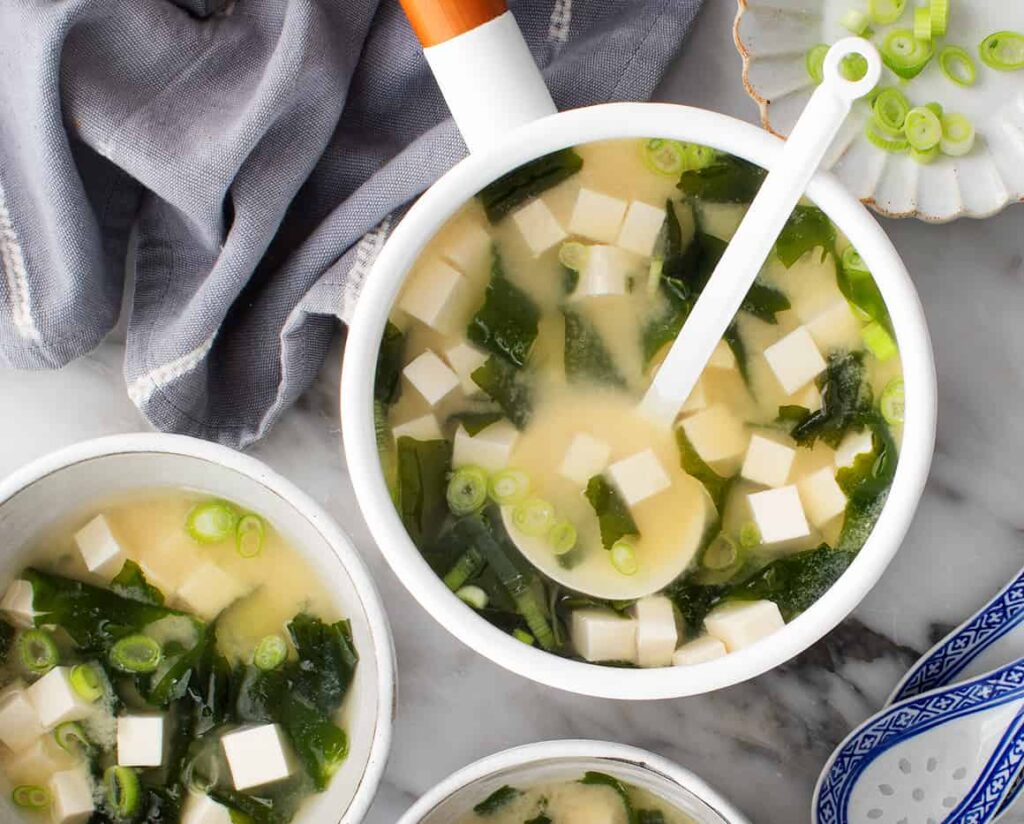
Most people have heard of miso soup, but you can use the miso paste for many other meals. It is filled with healthy bacteria and studies have found that it may be beneficial for reducing blood pressure and even preventing cancer. You can use it added to salad dressing, to make miso mayo, for soup, or other sauces.
Kefir
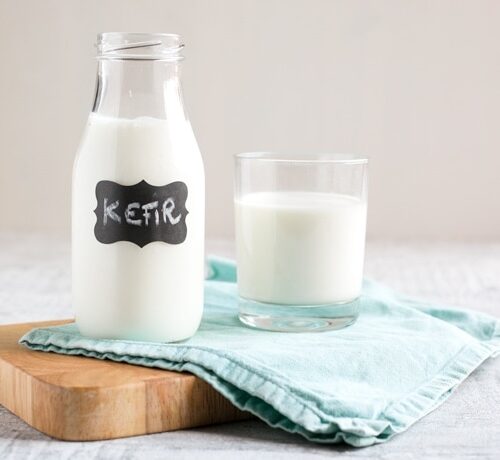
Kefir is one of the most probiotic rich foods in the world. It is traditionally made with dairy, but you can find several water or coconut based options if you have a dairy allergy or are vegan. You can even make your own at home using kefir starters mixed with a milk of your choice. Be careful not to sweeten it too much, since sugar can cause microbiome imbalances.
Broccoli
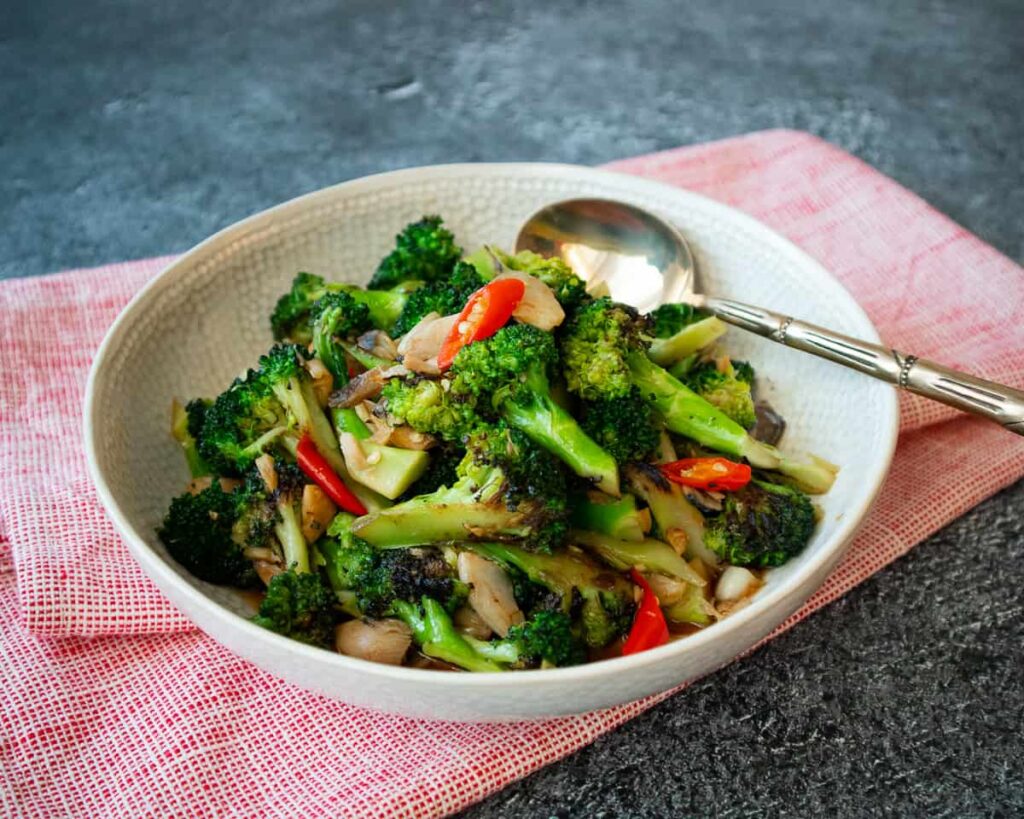
In 2017, a study published in the Journal of Functional Foods found that mice that were fed broccoli with their regular diet experienced an improvement in intestinal health. Broccoli is a green cruciferous vegetable that has lots of different uses and can be added to almost any meal. You can also get gut health benefits from other vegetables from the cruciferous family such as cabbage, kale, Brussels sprouts and cauliflower.
Keeping your gut healthy is important for lots of other aspects of your health including your immune function, skin health, and even your brain health. Add more of these gut-friendly foods to your diet to see the improvements they can make.



